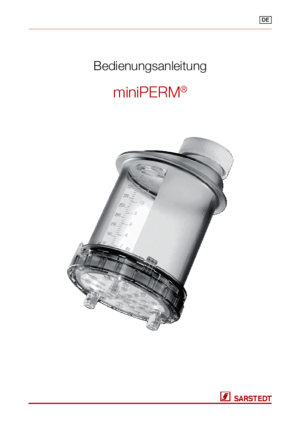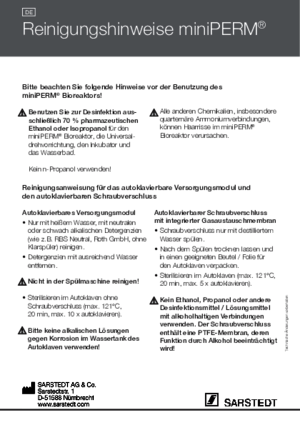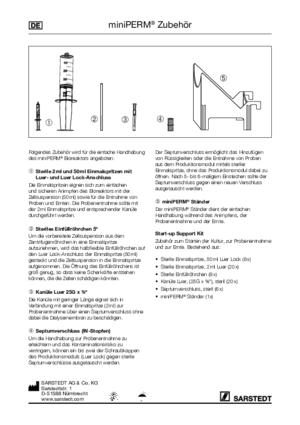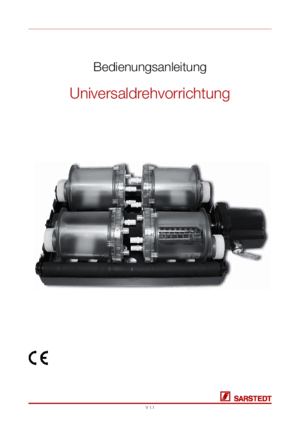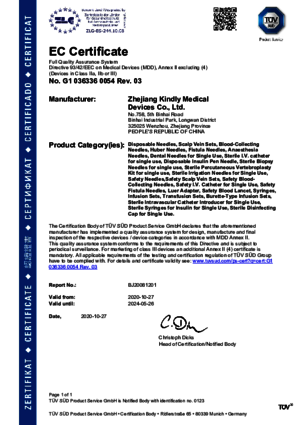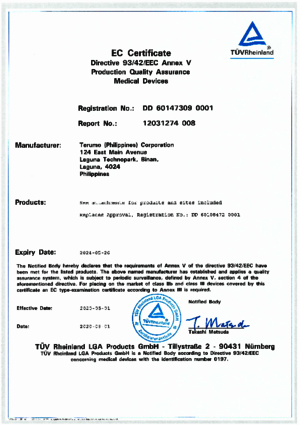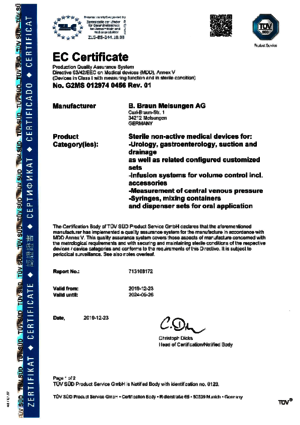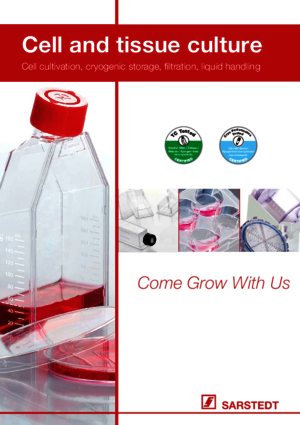
Cell- and tissue culture
Cell- and tissue culture
Language:

| Order number | 94.6077.135 |
|---|---|
| Product description | miniPERM®, Luer cannula, for miniPERM® bioreactor, Luer (f), not autoclavable, sterile, non-pyrogenic/endotoxin-free, 1 piece(s)/blister |
| Suitable for | miniPERM® bioreactor |
|---|---|
| Connection | Luer (f) |
| Product material | stainless steel |
|---|
| Product category | Medical device |
|---|---|
| CE certified | CE supplier |
| Purity standard | sterile, non-pyrogenic/endotoxin-free |
| Sterilisation | Gas sterilisation |
| Pyrogen-free | yes |
| Batched | yes |
| Minimum order qty. | 100 |
|---|---|
| Type of smallest subpackaging | blister |
| Piece(s) / inner box | 100 |
| Piece (s) / outer case | 1200 |
| Piece(s) / pallet | 129600 |
| Depth of case | 383 mm |
| Width of case | 193 mm |
| Height of case | 190 mm |
| Case volume | 0.014 cbm |
| Weight of product | 0.0011 kg |
| Weight of case | 1.8 kg |
| EAN of inner box | 4038917255899 |
| EAN case | 4038917255882 |

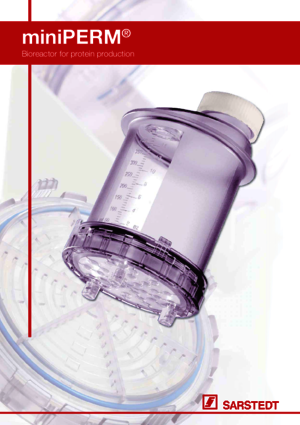
The miniPERM® is an easy-to-handle bioreactor which was developed for the cultivation of eukaryotic cells such as mammal cells, insect cells and plant cells in high density and therefore for biomass production and for the production of cell products. The sub-division of the bioreactor into production and nutrient modules and the rotating cultivation allow for the production of highly concentrated cell products in small volumes. Therefore, depending on the cell line, cell densities of more than 107 cells/ml and product concentrations of several mg/ml can be achieved. This means that the miniPERM® bioreactor is a cost-effective and time-saving alternative to conventional tissue and roller bottles and to fermentation systems.
The production module of the miniPERM® bioreactor is available for suspension cells in volumes of 35 ml or 50 ml. We offer a production module with a stationary matrix for adherent cells.
The miniPERM® bioreactor is subdivided into a production module and a nutrient module (two-compartment system) by a dialysis membrane. The dialysis membrane has a cut-off size of 12.5 kDa, so that that neither cells nor secreted cell products can diffuse into the nutrient module. At the same time, however, the exchange of nutrients and cell metabolites takes place via the dialysis membrane.
We would like to show you additional content which is hosted by a third party. For this purpose we need your consent to set cookies:
